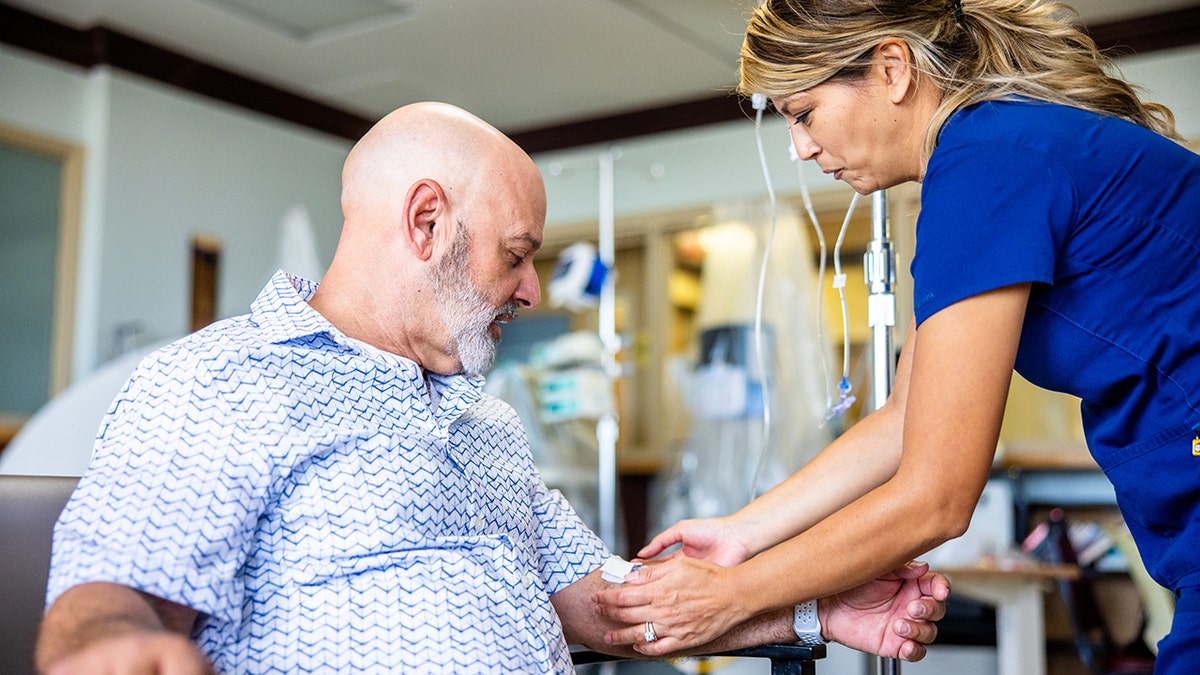NEWYou can now listen to Fox News articles!
What we eat plays a major role in our health and well-being, especially in the development of chronic disease.
On a recent episode of Dr. Mark Hyman’s podcast, “The Dr. Hyman Show,” the physician and Function Health co-founder spoke about how eating habits can change the course of illness.
Podcast guest Dr. Jason Fung, a Canadian physician, author and researcher, joined Hyman to discuss how fasting may help to reverse diseases like cancer.
TWO POPULAR TYPES OF EXERCISE COULD REDUCE CANCER GROWTH, STUDY FINDS
‘Repair mode’
“The whole idea of fasting is that you’re trying to put the body into this sort of regenerative maintenance mode,” he said. “Because what we’ve recognized is … you can go into growth mode, or you can go into sort of this cell maintenance repair mode.”
This depends on nutrient availability, the doctor said. When nutrients are available, it makes cells want to grow. Without nutrients, the body enters a state of “maintenance repair.”
Fung compared fasting to a car engine. Revving the engine and going fast will lead to a faster burnout — but sometimes it’s necessary to make a “pit stop” and bring the car into the shop for maintenance.
GLP-1 WEIGHT-LOSS MEDICATIONS LINKED TO IMPROVED CANCER SURVIVAL IN CERTAIN PATIENTS
“That’s the point of the human body, too,” he said. “You can go for growth, or you can go for longevity or cellular maintenance, but you’ve got to have a bit of both. It’s a balance there. It’s not all growth.”
Fasting and cancer treatment
Eating pushes cells into growth mode, according to Fung — which could be dangerous when battling diseases like cancer, where cells are growing too much.
“You’re basically feeding into that growth,” he said. “And that’s going to be very, very bad for you.”

Fasting can allow the cells to enter “care mode,” allowing the body to better undergo chemo and radiation therapy, according to the doctor.
Research has found that fasting just before, during and after chemotherapy can lead to fewer side effects as the cells slow down and “stop trying to grow,” Fung said.
“You can take care of your body and actually put the cancer at a disadvantage at the same time.”
Chemo aims to kill the fastest-growing cells, tending to go after hair follicles and the lining of the gastrointestinal tract, causing hair loss and nausea.
CLICK HERE TO DOWNLOAD THE FOX NEWS APP
“So, if you can put those cells into a quiescent sort of repair mode, [they’re] not going to sustain as much damage from the chemotherapy,” he said. “And instead, the cancer cells — which can’t stop their growth, they’re always trying to grow — they can’t do that. So, therefore, they’re going to sustain full damage from the chemotherapy while your body is relatively protected.”
Nutrition, metabolism and cancer
In an interview with Fox News Digital, Dr. Frank Dumont, internal medicine physician and executive medical director at Virta Health in Colorado, commented on the concept of starving cancer.
CLICK HERE TO SIGN UP FOR OUR HEALTH NEWSLETTER
As a physician specializing in using nutrition to improve metabolism, Dumont stressed that metabolic health goals can be met without having to resort to fasting.
There is “tremendous overlap” between the metabolic benefits of fasting, or time-restricted eating, and making adjustments to macronutrients in the diet, such as decreasing carbohydrate intake when appropriate, according to the doctor.

“You see the same types of benefits,” he said. “When you do that, glucose levels start to go down, insulin levels go down, inflammation goes down.”
“You can either adjust what you’re eating, or you can do things like restrict how much or when you’re eating. How you do that depends on what makes the most sense [for] your situation and what you can tolerate.”
TEST YOURSELF WITH OUR LATEST LIFESTYLE QUIZ
Dumont shared that when insulin increases, causing insulin resistance, this leads to metabolic dysfunction and can stimulate growth in some cancer cells.
Other types of cancer don’t use energy as well, relying on glucose as their “only form of fuel” as opposed to fat, fatty acids and ketones, according to Dumont.
CLICK HERE FOR MORE HEALTH STORIES
“The bottom line is, our body is much more flexible,” he said. “If you can start to get the nutrition to match up with the metabolism, that often means lowering the glucose intake — and, in a way, starving the cancer.”
At the same time, he said, it’s important to find a way to fuel the body with other types of foods.
“You can take care of your body and actually put the cancer at a disadvantage at the same time.”
Read the full article here













